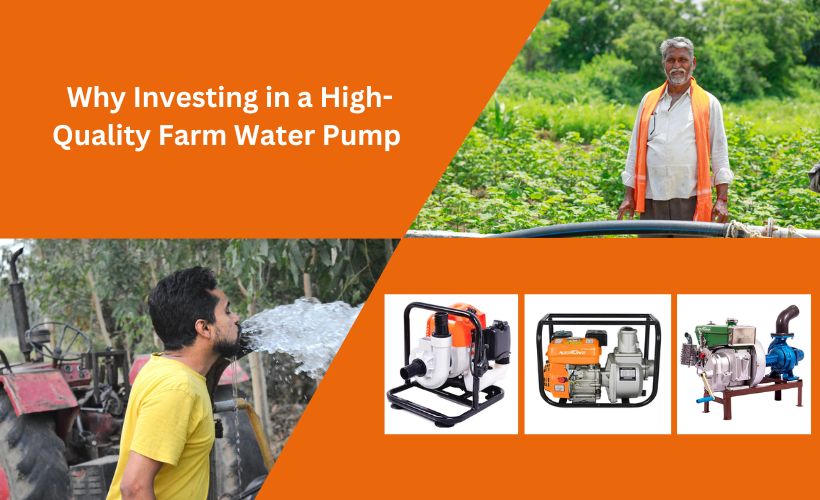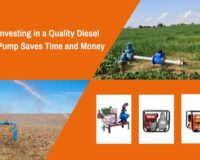Introduction
Water is the lifeblood of agriculture, essential for nurturing crops and keeping livestock healthy. Without a reliable water supply, farm productivity can suffer, leading to significant losses. While some farmers may be tempted to opt for a budget-friendly water pump, investing in a high-quality farm water pump is a strategic decision that offers long-term advantages. Let’s explore why a durable and efficient water pump is a wise investment for every farmer.
Beyond Basic Functionality: Understanding the Value of Quality
A farm water pump does more than just move water—it plays a crucial role in farm operations. High-quality pumps are built to withstand demanding agricultural conditions, ensuring efficiency and reliability. Unlike cheaper models that may break down frequently, premium pumps use durable materials and advanced engineering, reducing the risk of failure.
Reliability as a Foundation: Minimizing Disruptions and Maximizing Yields
Pump failure at a critical moment can be disastrous. Crops may wither without proper irrigation, and livestock could suffer from dehydration. A diesel water pump for agriculture ensures an uninterrupted water supply, giving farmers peace of mind. With a dependable pump, farmers can focus on other essential tasks, improving overall productivity.
Efficiency as a Driver of Sustainability: Saving Resources and Reducing Costs
Modern agricultural irrigation water pump are designed to optimize energy and water usage. By choosing an efficient pump, farmers can:
- Reduce electricity or fuel costs.
- Minimize water wastage, an essential factor in drought-prone regions.
- Improve irrigation efficiency, leading to healthier crops and higher yields.
Longevity and Return on Investment: Building a Sustainable Future
Although high-quality pumps may have a higher initial cost, they offer a better return on investment over time. Cheaper alternatives often require frequent repairs or replacements, leading to hidden costs. A durable agriculture motor pump ensures longevity and lower maintenance expenses, making it a smart financial choice for farmers.
Customization and Specialization: Tailoring Solutions to Specific Needs
Different farms have unique water requirements. High-quality pump manufacturers provide various options tailored to specific needs, such as:
- Submersible pumps for deep wells
- Centrifugal pumps for high-volume irrigation
- Pressure pumps for livestock watering
- Solar-powered pumps for energy-efficient solutions
Smart Technology and Precision: The Future of Farm Water Management
Technology is revolutionizing agricultural water management. Many modern pumps feature smart controls, allowing farmers to:
- Monitor water usage remotely
- Automate irrigation schedules
- Analyze real-time data for better efficiency
These advancements help farmers conserve water, reduce operational costs, and improve overall farm productivity.
Choosing the Right Partner: Expertise and Support
Investing in a farm water pump is not just about buying a machine—it’s about choosing a reliable supplier who offers expert guidance and after-sales support. Reputable manufacturers provide:
- Professional installation services
- Regular maintenance and repairs
- Customer support for troubleshooting issues
Conclusion
A high-quality farm water pump is a long-term investment that ensures efficiency, reliability, and sustainability. By choosing a durable and efficient pump, farmers can secure their water supply, reduce costs, and enhance productivity. While the upfront cost may be higher, the long-term benefits far outweigh the expenses, making it a crucial asset for any modern farm.
FAQs
Q1. Which pump is suitable for water?
Domestic pump use; Water Supply and Pressure Boosting
For domestic applications, such as supplying water to homes, pressure boosting, or garden irrigation, centrifugal pumps or jet pumps are often suitable choices due to their efficiency, ease of use, and cost-effectiveness.
Q2. What is the best pump for farm irrigation?
In general, centrifugal pumps are best for low- to medium-flow applications, while multistage pumps are better for high-pressure applications. Power source: Irrigation pumps can be powered by electricity, engine-driven via petrol or diesel, or solar energy.




